
How might the United States Space Force, its friends, and allies introduce commercial capabilities to its mission environment for International Space Domain Awareness and spaceflight safety?
Space Domain Awareness (SDA) includes the ability to understand, monitor, and study satellites within space. This is done through detection, tracking, identification, and characterization to support activities and the resilience of space systems in support of international SDA missions.
With private sectors around the world accelerating new capabilities for Space Domain Awareness, the US and its partners are interested in increasing the ability to support and enhance the awareness of the space environment with commercial data and tools for shared security and prosperity. Submitted solutions may augment, supplement, backup, complement, and improve current SDA mission sensors, systems, and analysis and may include data, software tools, mission system elements, as well as services provided directly to US and international space operations.
Both US and international solutions, with commercial market viability, are desired across a wide array of relevant technologies. Mature solutions may have demonstration opportunities in training exercises with operational users.
| May 31, 2022 | Application Deadline |
| June 15, 2022 | Ask Me Anything Session |
| July 06, 2022 | Applications Close |
| July 18-20, 2022 | Applicant Pitch Days |
| August 09-18, 2022 | On-Weeks |
| August 10, 2022 | Happy Hour |
| September 06-15, 2022 | On-Weeks |
| September 8, 2022 | Happy Hour! |
| October 04-13, 2022 | On-Weeks |
| November 01-04, 2022 | Final On-Week |
| November 03, 2022 | Demo Day |
| May 31, 2022 | Application Deadline | |
| June 15, 2022 | Ask Me Anything Session | Watch Recording HERE |
| July 06, 2022 | Applications Close | Close at 8:00AM MT |
| July 18-20, 2022 | Applicant Pitch Days | |
| August 09-18, 2022 | On-Weeks | |
| August 10, 2022 | Happy Hour | Sponsored by ONE Dev
|
| September 06-15, 2022 | On-Weeks | |
| September 8, 2022 | Happy Hour! | Sponsored by The Smalls Colorado
|
| October 04-13, 2022 | On-Weeks | |
| November 01-04, 2022 | Final On-Week | |
| November 03, 2022 | Demo Day |
|
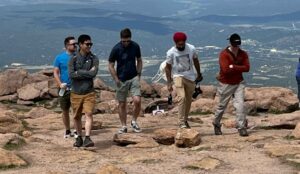

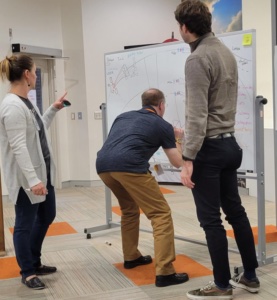

Astrosite (Sydney, Australia) uses advanced high speed optical sensors and AI to rapidly deliver new insights into the space domain. Their neuromorphic sensors coupled with advanced AI techniques create unique data and insights for SDA and EO applications. The system is low power and produces only relevant data which enables their proprietary algorithms to rapidly produce unique insights from the ground or in space.
Astrosite solutions enable the design of an agile global sensor network that can be redeployed in 24 hours. The system provides synchronized microsecond resolution across a network and creates digital fingerprints of resident space objects, these advanced characterization capabilities are available in a unique catalogue.
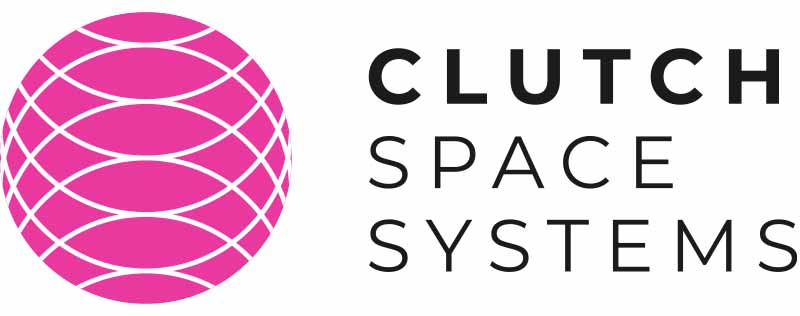
Clutch Space (Guildford, United Kingdom) is leading the revolution for the next generation of spacecraft operations on low earth orbit, with persistent connectivity, and real-time situational awareness for tangible improvements in mission efficiency and utility. They are providing global coverage through their network of micro-ground stations, each with a simultaneous capacity of twenty satellites, for telemetry, tracking and control, and for real-time spacecraft situational awareness position and attitude.
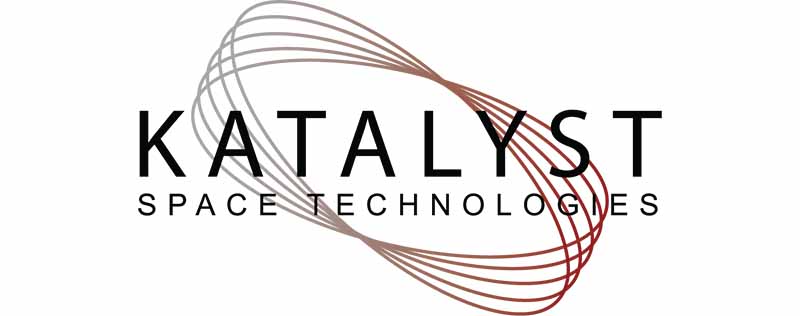
Katalyst Space Technologies (Flagstaff, Arizona) develops modular spacecraft designs and mission architectures that interact with on-orbit robotics to increase responsiveness, and mission flexibility. Katalyst’s mission is to advance innovations with in-space servicing and assembly while solving existing problems like space congestion and space traffic management. Katalyst’s retrofittable SDA module is designed to non-invasively attach to spacecraft without prepared interfaces to provide local awareness. The project is planned to launch a demonstration mission in May 2024. Katalyst also develops automated software for use with existing SDA infrastructure like ground and space-based sensors to characterize resident space objects for space, size, and attitude.
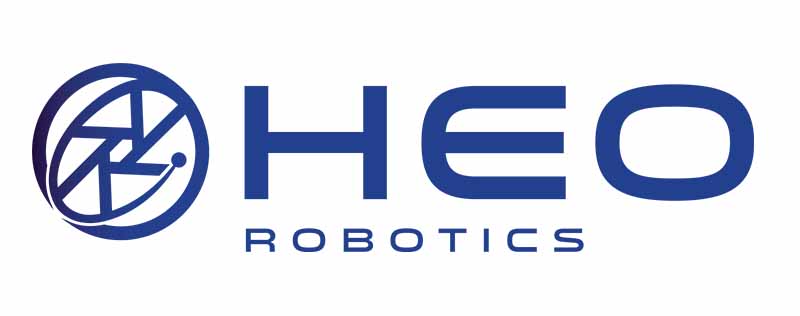
HEO Robotics (Sydney, Australia) has a mission to image anything within the Solar System on demand. They provide resolved images and analytics of space objects to governments and commercial satellite operators that provide critical insights, such as object identification, satellite damage assessment and more. They do this through using their flyby inspection technique, where they use Earth observation satellites during their downtime to image other space objects as they fly past. They have 33 satellites that they have access to today and are building towards 2,500 cameras to provide ubiquitous and on-demand coverage of all Earth orbits.

LMO (Luxembourg) uses sensors and artificial intelligence to enhance space domain awareness. Their vision is to enable satellites to see and operate autonomously in space. By combining sensors and artificial intelligence, they provide satellites the capability to autonomously understand their surrounding in real time and act upon them. By identifying, characterizing, and understanding the movement of other objects, they enable autonomous Space Surveillance, In-Orbit Services and Threat Detection providing a safe and sustainable in-space economy to flourish.

Lumi Space (Yateley, United Kingdom) is enabling sustainable space activity for future generations with precise space surveillance data. They are deploying a global network of ground-based systems for satellite tracking, including Satellite Laser Ranging (SLR). By measuring the position of satellites in orbit precisely, they can predict their paths more accurately than existing methods. In doing this, they are critical to minimizing uncertainty in collision warnings and enabling exciting new space applications. They see data uncertainty as the biggest risk to global space activity, and a significant limiting factor for many novel space companies (active debris removal, in-space manufacturing, rendezvous, and proximity operations to name a few).

Silentium Defence (Adelaide, Australia) is a global leader in the design and deployment of passive radar systems for tactical and strategic surveillance scenarios. A disruptive technology, designed and developed in Australia, their unique situational awareness solutions enable customers to detect without compromise and act with confidence across sea, air, land, and space domains. Their MAVERICK S-series sensors provide the ability to persistently track objects across a wide arc of space, providing accurate, independent data for space traffic management. In an increasingly congested domain, MAVERICK S-series provides globally unique, cost-effective space surveillance data. Silentium Defence is on a mission to change the way the world does surveillance and help keep people, places, and critical assets safe.
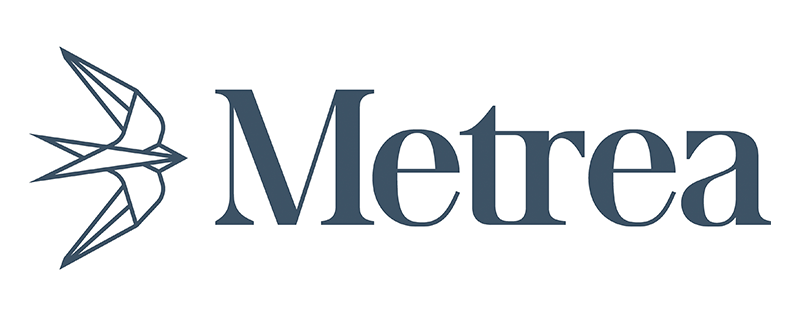
Metrea Mission Data (Lincoln, United Kingdom; Washington, DC) looks beyond sensors, terminals, and platforms to put data first in C4ISR mission effects. They combine deep operational ISR experience with mission-focused engineering across Tactical Data Links, complex Data Analytics, and Information Assurance to create adaptive solutions for multi-domain customers. Their unique Low Earth Orbit Airborne Space Surveillance Operations (LASSO) software optimizes traditional lookdown EO/IR camera systems for the detection, tracking, imaging, and classification of Resident Space Objects. LASSO delivers an innovative solution for Space Domain Awareness that can be rapidly re-tasked and networked into a game-changing global system for the Space sector.